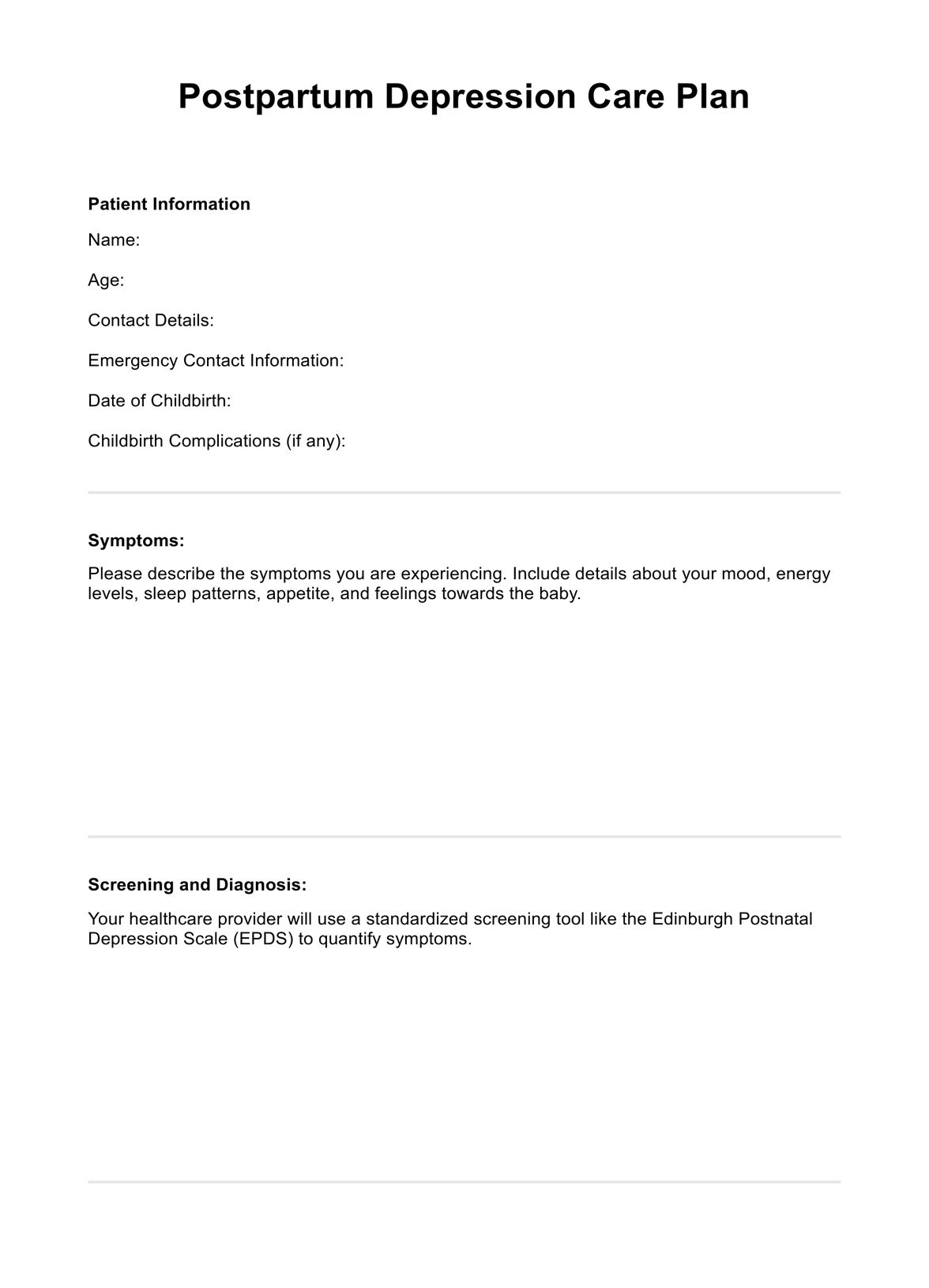Postpartum Depression Care Plans are used by healthcare professionals, such as psychiatrists, psychologists, nurses, and patients and their families.

Postpartum Depression Care Plans
Navigate the challenges of postpartum depression with our comprehensive care plans. Download your free PDF template today.
Use Template
Postpartum Depression Care Plans Template
Commonly asked questions
The care plans are used as a roadmap for treatment, offering a comprehensive overview of patient care, including diagnosis, medication, therapy, self-care, and emergency planning.
Postpartum Depression Care Plans provide a structured approach to managing and treating postpartum depression. They facilitate communication, guide treatment, track progress, and help prepare for emergencies.
EHR and practice management software
Get started for free
*No credit card required
Free
$0/usd
Unlimited clients
Telehealth
1GB of storage
Client portal text
Automated billing and online payments











